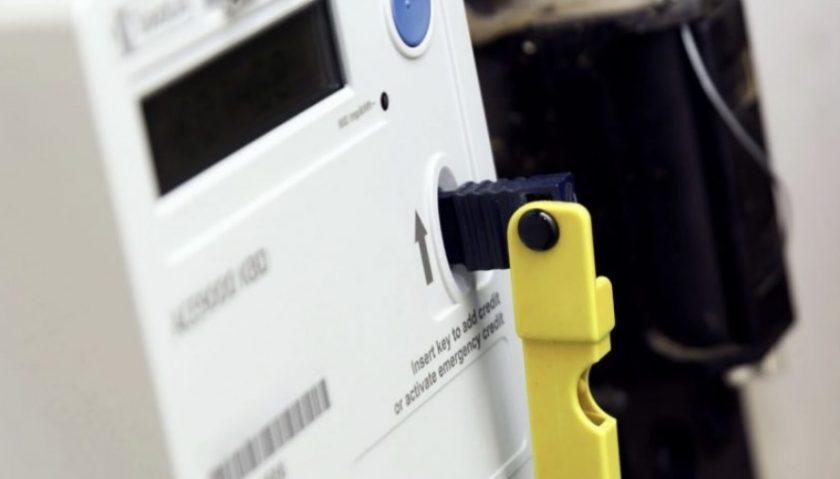Energy crisis: prepayment meter numbers rise for the first time since 2019 — with thousands more facing risk of self-disconnection

The energy crisis has reversed a long-term trend for falling numbers of prepayment meters, putting thousands more households at risk of self-disconnection, according to new data.
From the middle of 2019, the number of prepayment meters dropped for nine consecutive quarters, plunging from a total of 7,837,471 in the second quarter of that year, to 7,320,329 in the third quarter of 2021.
But the number of prepayment meters then rose to 7,352,808 in quarter four of 2021, and hit 7,380,697 in the first quarter of this year – an increase of almost 60,000 in six months, Uswitch.com has found.
If the current rate of increase continues, another 30,000 gas and electricity meters will be moved to prepayment in the last quarter of this year.
This would mean 10,000 meters being switched to prepayment every month.
Households who fall behind in their energy bill payments can be pushed onto prepayment meters by their suppliers.
They need to be regularly ‘topped up’ – intended to prevent bill-payers from falling deeper into energy debt.
However, the pay-as-you-go nature of prepayment meters can push households into self-disconnecting when they can’t afford to top up.
Daily standing charges continue to pile up even if homes aren’t using any electricity, which can mean that when prepayment meter customers go to top up, they find their credit is swallowed up by paying this debt.
Prepayment meters cost the average household around £50 more a year in standing charges compared to an equivalent direct debit customer due to the cost of the extra infrastructure needed to accept payments.
Graph: Total prepayment meters by quarter
Table: Gas and electricity prepayment meter numbers
|
Year |
Quarter |
Electricity |
Gas |
Total |
|
2019 |
Q1 |
4,332,937 |
3,412,558 |
7,745,495 |
|
Q2 |
4,389,182 |
3,448,289 |
7,837,471 |
|
|
Q3 |
4,357,220 |
3,427,526 |
7,784,746 |
|
|
Q4 |
4,348,306 |
3,423,065 |
7,771,371 |
|
|
2020 |
Q1 |
4,294,471 |
3,375,810 |
7,670,281 |
|
Q2 |
4,275,267 |
3,362,619 |
7,637,886 |
|
|
Q3 |
4,258,000 |
3,340,008 |
7,598,008 |
|
|
Q4 |
4,197,648 |
3,311,537 |
7,509,185 |
|
|
2021 |
Q1 |
4,177,405 |
3,279,253 |
7,456,658 |
|
Q2 |
4,150,065 |
3,214,101 |
7,364,166 |
|
|
Q3 |
4,102,915 |
3,217,414 |
7,320,329 |
|
|
Q4 |
4,124,398 |
3,228,410 |
7,352,808 |
|
|
2022 |
Q1 |
4,142,756 |
3,237,941 |
7,380,697 |
|
Q2 |
4,162,822* |
3,248,254* |
7,411,068* |
|
|
Q3 |
4,182,985* |
3,258,599* |
7,441,564* |
|
|
Q4 |
4,203,245* |
3,268,978* |
7,472,185* |
Source: Uswitch.com. Freedom of information request from Ofgem based on analysis of data received from suppliers. Data extrapolated from average of increase in Q4 2021 and Q1 2022.
The findings follow reports of wider supplier failings for vulnerable customers. Ofgem recently found that three suppliers – TruEnergy, Utilita and ScottishPower – had shown “severe weaknesses” in the way they support struggling customers, while five, E, Good, Green Energy, Outfox and Bulb, were found to have some issues in the support they provide.
Following the update to the Energy Price Guarantee, Uswitch.com is calling on the Government to ensure that prepayment meter customers at risk of self-disconnection are considered the highest priority for additional support beyond April 2023.
Richard Neudegg, director of regulation at Uswitch.com, comments: “The rise of prepayment meter numbers is a worrying reversal of a trend after nine consecutive quarters falling – suggesting households are becoming increasingly at risk this winter.
“With energy prices set to rise again in April, this is a warning of things to come and we will most likely see more and more households moved to prepayment meters in the coming months and years.
“Families and individuals on pre-payment meters will be plunged into darkness as they self-disconnect when they can’t afford to top up.
“We want the Government to ensure that vulnerable consumers on prepayment meters are considered the higher priority for additional support beyond April 2023 when the Energy Price Guarantee changes.
“Anyone who is worried about paying their energy bills this winter should contact their energy supplier, who can offer advice and support.”
Spotted something? Got a story? Email: [email protected]
Latest News
